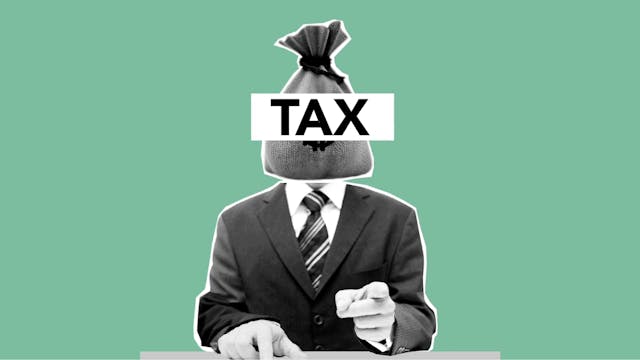How To Enter Young Adulthood With Good Spending Habits
As we enter adulthood, we have to come to terms with the fact that we have plenty of things we do not know, that we need to learn. Often we have to learn the hard way, despite our parents and wiser elders warning us. Personal finances are a difficult subject to speak about. Of course, we are all responsible for our own spending choices, however as we are loaded with new financial responsibilities, it might take some time to adjust.
Starting with the right habits before you fall into poor money habits is the smartest thing to do. Knowing what these habits consist of is not common knowledge, especially for individuals who have grown up surrounded by poor financial habits from family and friends. If you are looking to break the generational curse and be smarter than your peers, start gaining financial knowledge and implement the following strategies.
Positives Of Good Spending Habits
You may have heard some of your peers encouraging you to not worry about your finances, understandably due to the fact you are young and have fewer responsibilities. There are more positives than negatives to having smart spending habits as a young adult, and here are some of the most important positives:
Better Credit Score
If you can implement good financial habits, credit lenders will be able to see you can manage money well and therefore be more inclined to offer better credit. Credit can fall into the forms of mortgages, financing for vehicles, and other essentials we all hope to have at some point in our lives. Having a good credit score is essential because if you have poor credit due to racking up debt you are less likely to be accepted to get a mortgage and other essentials you hope to own someday. Good credit starts with good spending habits.
More Disposable Income
When we are young all we want to do is live these memorable years to our fullest potential, and that usually requires a large sum of disposable income. Of course, with a great paying job and few financial responsibilities you are more likely to have a larger level of disposable income. However, a large wage does not guarantee disposable income, as young adults with poor spending habits often recklessly spend their money leaving less money for planned events such as holidays and other activities. Knowing where to put your money can be the difference between spending your weekends doing exactly what you want, or scraping through the rest of the month.
Less Likely To Fall Into Debt
Falling into debt just as you are trying to figure out how to be an adult can be detrimental to your spending habits for the rest of your life. It is important to understand the difference between good and bad debt. For example, if you currently have educational debt, it might be deemed as good debt as the degree potentially allows you to get a high-paying job. On the contrary, if you’re getting into debt because you are recklessly using a credit card to pay for shopping trips and holidays without paying it back in due time, you can be putting yourself at risk. Often these people do find resolutions with IVA advice, however avoiding bad debt as a whale can be achieved through good spending habits.
Create Monthly Budgets
Good spending habits start with having a great understanding of where exactly your money is going. As mentioned, entering adulthood can result in a whole load of new financial responsibilities being laid on you. Your old spending habits may need to be tweaked to stay in line with your new expenses, especially if you have bills to pay. Start by writing what obligated expenses you have to pay, and then create budgets for what you can spend on different categories such as food, activities, and travel expenses. Always save a portion of your wage towards your savings, or at least start building up an emergency fund for the worst-case scenario.
Set Yourself Saving Goals
Speaking of savings, all young adults should begin to create savings pots anticipating large purchases. For example, you should consider setting aside a portion of money each to save towards things you hope to buy. You might consider opening a savings account that is dedicated to helping you save towards a house, and they often offer higher interest than what you would get from a personal savings account. Regardless of what you choose to save for, be intentional with what you are saving for, and avoid taking the money out of your savings accounts.
Only Spend If You Can 3X
As much as we should all live within our means, there are the occasional treats that we should allow ourselves to have. The worst spenders are usually formed when they begin to be enticed into the finer things in life, such as designer clothing and other unnecessary items. If you are planning to splash out on something, first consider if it is needed, and second calculate if you will comfortably get through the rest of the month if you bought it three times. Track your spending, and if you are letting yourself have too many treats in the month take a step back and be strict.
Careful Credit
Credit does for the most part have a bad rep. This is because people tend to be careless with credit, leaving them in bad debt. If you are going to get yourself a credit card, you need to learn how to use it sensibly. They are extremely useful when it comes to building credit, as lenders give benefits to individuals who are great with credit. Start by paying small amounts with the credit card such as travel expenses, and transfer money from your bank back into the credit account as soon as possible to pay it off. Avoid credit when possible, but also use it to build your credit for smaller daily expenses that you can immediately pay back.
Final Thoughts
Overall, our suggestions should be used as valuable guides to get you started with creating good financial habits. If you’re hoping to live comfortably and manage your money like an expert, you should invest some time into learning financial literacy. This will help you understand the intricate details of maintaining your money as a young adult. It is never too late to learn good spending habits, and the best thing you can do is start today.


















